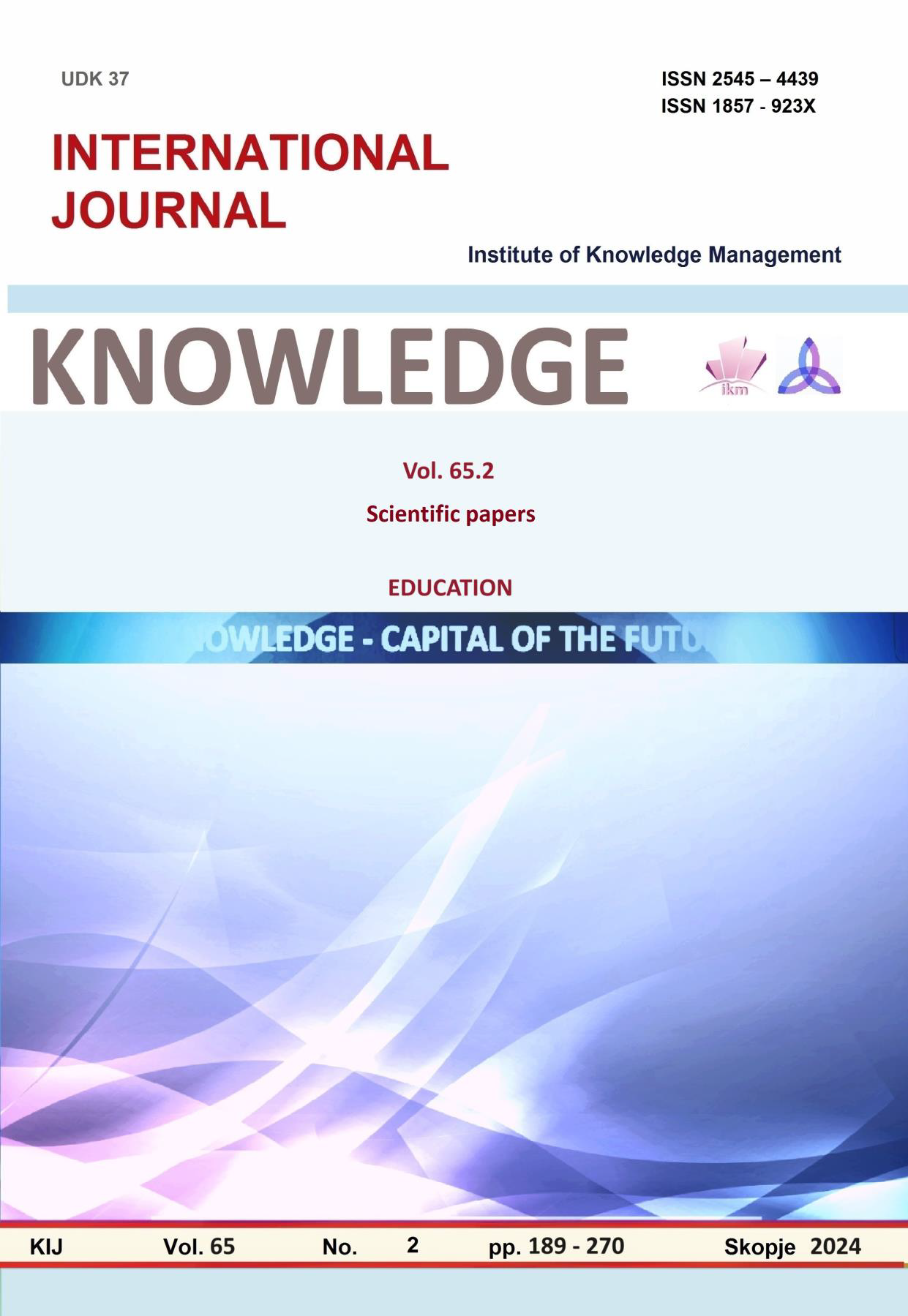ΘΕΩΡΙΕΣ ΚΑΙ ΑΡΧΕΣ ΤΗΣ ΔΙΑΠΟΛΙΤΙΣΜΙΚΗΣ ΕΚΠΑΙΔΕΥΣΗΣ· Η ΕΦΑΡΜΟΓΗ ΤΟΥΣ ΣΤΟ ΕΛΛΗΝΙΚΟ ΕΚΠΑΙΔΕΥΤΙΚΟ ΣΥΣΤΗΜΑ
THEORIES AND PRINCIPLES OF INTERCULTURAL EDUCATION; THEIR APPLICATION IN THE GREEK EDUCATION SYSTEM
Author(s): Chrysoula-Maria GrammenouSubject(s): Social Sciences, Education, School education, Pedagogy
Published by: Scientific Institute of Management and Knowledge
Keywords: minorities;greek educational system;intercultural education;educational inclusion
Summary/Abstract: The application and impact of intercultural education in Greece has garnered considerable attention as the country strives to promote a new era of inclusive education. The present research aims to investigate the effectiveness and results of the integration of intercultural education practices in Greek schools. Examining the current state of intercultural education in Greece, this study methodologically seeks to identify the theories of intercultural education and its basic principles, in order to propose and generally promote best practices and potential areas for encouraging diversity, tolerance and understanding between students from different cultural backgrounds. The research results obtained indicate that in the context of the integration of intercultural education in modern educational systems, the intention to criticize or question certain cultures should not be maintained at all. In contrast, the central principle of this approach is the unconditional acceptance of cultures rather than their hierarchical ranking. These are also the main principles that education must serve in order to achieve the goals of interculturalism. Intercultural education is now an integral part of the general education that schools must provide to all students. A key pillar for the adoption of intercultural education is the way in which society, as well as its members, approach and give meaning to the concept of culture. In conclusion, the findings of this research paper highlight the importance of intercultural education in promoting a learning environment that not only acknowledges, but also celebrates the richness of cultural diversity. Through understanding and accepting diversity and promoting mutual and genuine respect between students from different cultural backgrounds, Greece aims to bridge existing cultural differences and foster a sense of unity in its educational institutions. However, it is important to recognize the potential limitations and challenges associated with implementing intercultural education programs, such as the need for ongoing support and resources to sustain these initiatives long-term. As contemporary research studies the complexities of multiculturalism in the education system, understanding the implications of intercultural education is vital if society is to de-limit and foreclose and foster greater cohesion. In terms of future recommendations, research should focus on evaluating the long-term effectiveness of intercultural education in Greece, exploring ways to further enhance its impact, and addressing any gaps or deficiencies that may arise.
Journal: Knowledge - International Journal
- Issue Year: 65/2024
- Issue No: 2
- Page Range: 245-251
- Page Count: 7
- Language: Greek, Modern (1453-)

